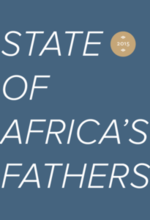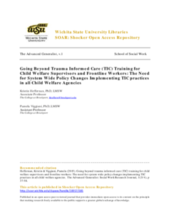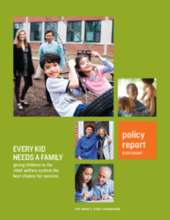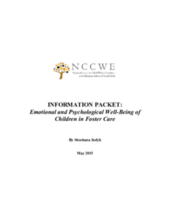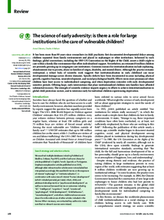Displaying 321 - 330 of 490
This study examined psychopathology at age 12 years in a cohort of Romanian children who had been abandoned at birth and placed into institutional care, then assigned either to be placed in foster care or to care as usual.
This report from Sonke Gender Justice is an adaptation of the global State of the World’s Fathers report, produced by Mencare. The report highlights the research and findings from the State of the World’s Fathers report that are specific to Africa.
This article reviews current efforts to train child welfare workers in the US in trauma informed practices and argues that trauma informed care adaptation and training must transcend case workers and supervisors in order for true systemic change to occur.
These videos demonstrate the importance of mentoring not only for vulnerable and foster youth, but also for the mentors themselves.
This KIDS COUNT policy report highlights the benefits of family care for children and the need to prioritize family settings for all children in the child welfare system in the United States.
This information packet presents an overview of facts, statistics, policies, legislation, best practices, model programs, and additional resources related to the US child welfare system and the emotional and psychological well-being of children involved in that system.
This study was aimed at assessing growth and developmental outcomes of children living in orphanages in Odisha, India aged birth to 72 months and to make recommendations for “possible remedial measures” for addressing poor growth and developmental outcomes for children in institutions.
In this brief article, the authors make their case for extending the age limit for young people to receive care in the foster care system, focusing on the UK and the US.
This study sought to understand gender differences in potentially traumatic events (PTEs) in orphaned and separated children in 5 low- and middle-income countries (LMIC): Cambodia, Ethiopia, India, Kenya and Tanzania.
This review discusses the worldwide phenomenon of child institutionalisation and assesses scientific evidence on the developmental effects of early institutional care.

